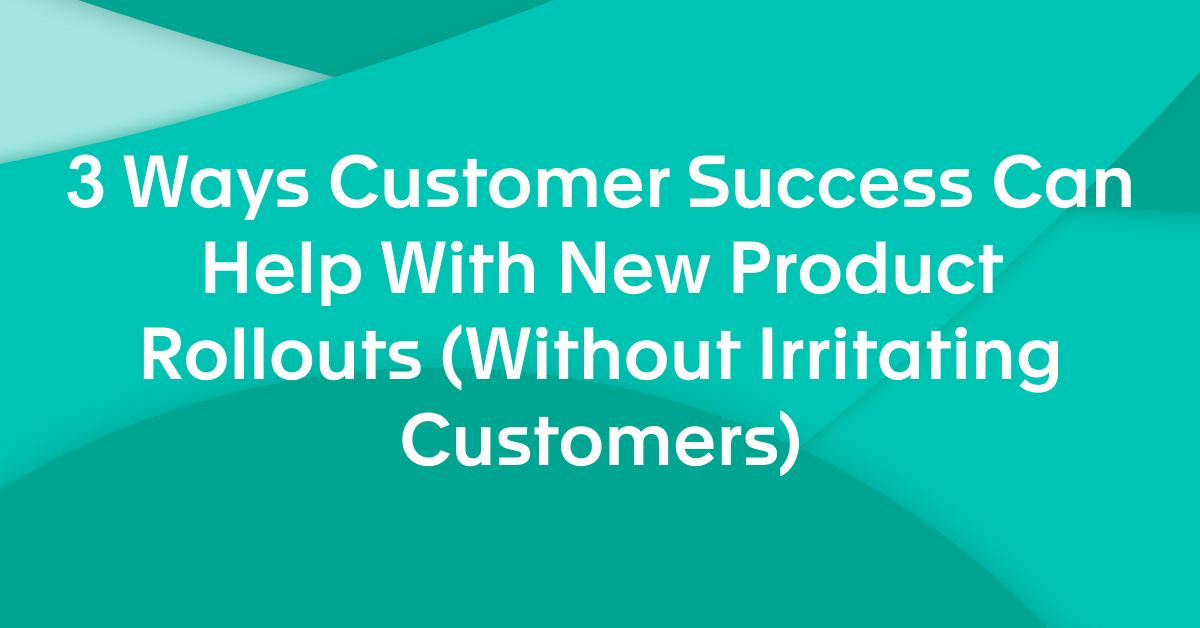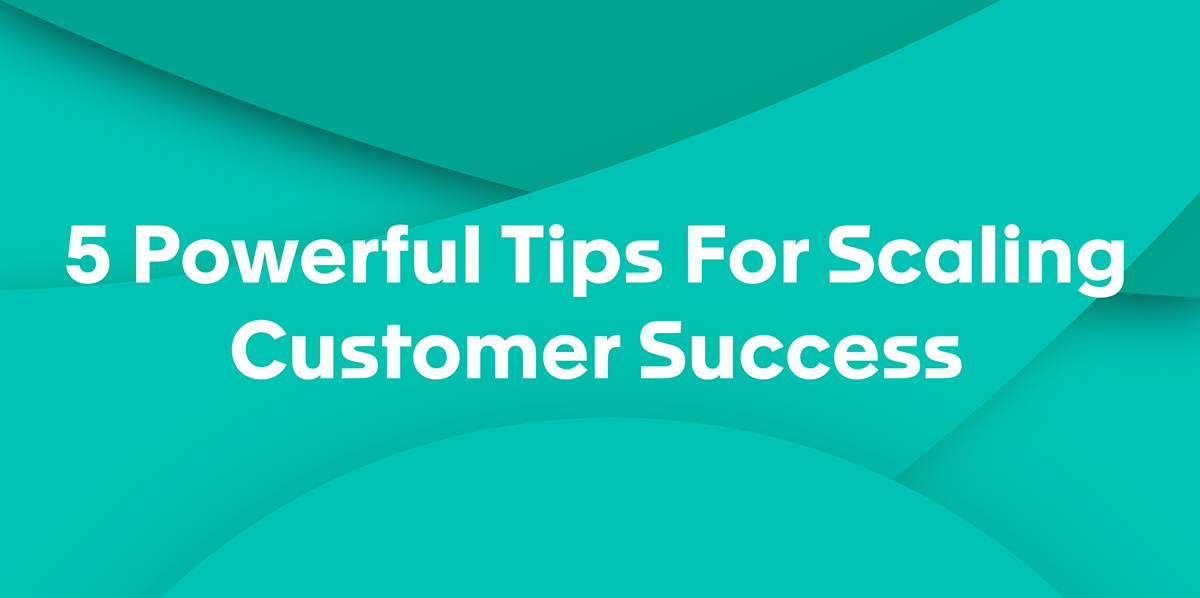Stop Believing These 7 Customer Success Misconceptions
Even though customer success is a critical growth lever, a lot of business leaders still believe incorrect things about the Success function.
Customer Success might have been “invented” by tech startups, but the concept has its foundations in centuries-old practices around hospitality and customer care. Unfortunately though, the building of the modern customer success function opened the door for significant misconceptions.
Even though customer success is a critical growth lever, a lot of business leaders still believe incorrect things about the Success function.
We’ve heard some myths floating around that we hope to put to rest once and for all. Here are seven myths about customer success and the truths behind them.
1. CS is only for software companies
While the modern concept of customer success started in software, the principles work for all organizations.
For instance, what company doesn’t want happy customers who get value from their products and services, leading them to purchase more and encourage their qualified colleagues, friends, and family to purchase as well?
That’s what CS is all about. It’s not all about SaaS customer success, but about helping customers drive the most value possible from your offering.
2. Customer success is uber personalized
Personalization is about guiding someone on the journey that helps them get value from your offering. It’s not actually about customizing every step. It’s a tough balance, but you have to give customers enough attention so they feel valued and well-equipped without weighing down any department.
Besides, your customers don’t even want constantly-custom offerings. They want to interact with you in multiple ways, they want their problems solved, and they want to engage digitally rather than always waiting on a person. That’s good news, since customer success managers are asked to do way more than they can possibly accomplish in a day.

3. It’s a single-department drive
While having a dedicated person or team focused on customer success is critical, CS efforts are most fruitful when the entire organization is involved. From product developers to sales associates and customer service representatives, all departments must continually collect client feedback and disperse data. The customer success team orchestrates the information and strategies based on what they glean from other departments.
For example, data from the Boston Consulting Group found organizations that collectively prioritize building a great customer experience rapidly outperform peers, driving more value, growth, and trust.

4. Tracking anything and everything will guarantee progress
While data allows us a glimpse into our product or service’s reception, it can be subjective.
What CS should focus on, instead, is determining whether or not customers are getting value from the product or service—which you can measure (or get a direction on) if you’re tracking the right metrics. They should learn how and why customers interact with their business. The focal point really needs to rest outwardly on the customer and not inwardly on the company.
5. Excellent customer service equals customer success
Customer service is an essential component of CS. After all, how quickly your customers can access assistance and get their issues resolved will determine, in part, how satisfied they are with your company.
However, customer service is reactive – support engages with customers after they log a complaint or vocalize an unfulfilled need somewhere. Customer success must consider unfulfilled needs to determine how they can improve products or processes. As a result, the entire customer experience and brand improve to ensure the smoother sailing of all future customers. But the two are different and cannot be effectively run by one person or team.
6. You should always aim for zero churn
While you are looking to reduce churn, zero churn is unrealistic. If your product is a poor fit for your customer or they aren’t achieving their desired value, it’s best to cut them loose. Avoid tying them down with lengthy or punitive contracts, which is what a zero-churn goal can lead to.
Then, of course, there’s the cheeky side of this comment. Instead of aiming for zero churn, you really should be aiming for negative churn–that is, expansion and growth within your existing customer base. Yes, some bad-fit customers might need to go, but your overall goal should be customer-led growth rather than just playing defense.
7. There is only one right way to cs success
It’s tempting to take someone else’s “tried and true” and set that as your rule. Be aware that all practices and numbers you hear tell of are rules-of-thumb.
For instance, we’ve heard the rule about having a dedicated customer success manager (CSM) for every $2 million of annual recurring revenue. That might make a good jumping-off point, but there isn’t a one-size-fits-all answer to CS success. Everything depends on the unique characteristics of the product, CSM and customer.
In summary…
Customer success is good for any business. Using a dedicated CS manager or team, you’ll proactively help your customers achieve their goals with your product or service. Take all advice as the rule of thumb it was meant to be – results and processes will be as unique as you are. When your focal point rests on your customer’s experience, you’ll be most successful with customer success.
Related Articles
Stories, best practices and thought leadership from the customer success community.

Blog Posts
Customer Success Will Lead the Way Out of the Market Downturn

Blog Posts
3 Ways Customer Success Can Help With New Product Rollouts (Without Irritating Customers)



